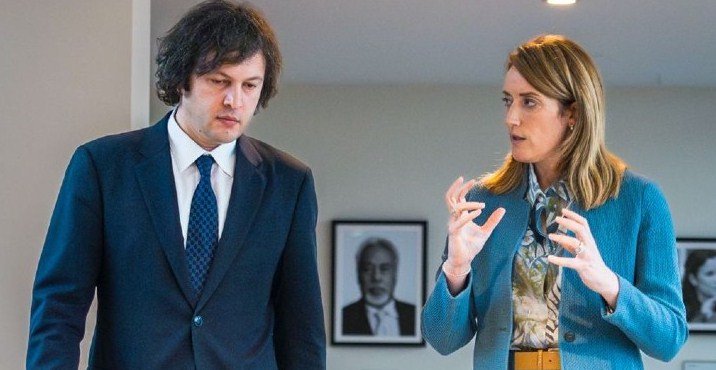Kobakhidze thanked Metsola for her positive attitude and constructive engagement with Georgia. He also reiterated Georgia’s determination to fulfill its obligations under the Association Agreement and the Deep and Comprehensive Free Trade Area with the EU, and to achieve visa liberalization and sectoral integration.
Georgia-EU Relations: Achievements and Prospects
Georgia and the EU have established a close and strategic partnership based on shared values and common interests. Georgia is one of the most successful and ambitious partners of the EU within the Eastern Partnership framework, and has made significant progress in aligning its legislation and standards with the EU acquis.
The EU is Georgia’s largest trading partner and the main source of foreign direct investment, development assistance, and humanitarian aid. The EU also supports Georgia’s sovereignty and territorial integrity, and plays a key role in the Geneva International Discussions, which aim to address the consequences of the 2008 Russia-Georgia war.

The EU and Georgia are currently working on updating their Association Agenda for 2024-2027, which will set the priorities and objectives for their cooperation in the coming years. The EU has also expressed its readiness to explore the possibility of launching a dialogue on the Common Security and Defence Policy with Georgia, as well as to enhance their cooperation in the fields of energy, transport, digitalization, and green transition.
Georgia’s Reform Agenda: Challenges and Opportunities
Georgia faces a number of challenges and opportunities in its reform agenda, which is essential for its democratic consolidation and European integration. Some of the key areas that require further efforts and attention include:
- Electoral and judicial reforms: Georgia needs to ensure the independence, impartiality, and accountability of its electoral and judicial institutions, and to address the shortcomings and recommendations identified by the international observers and experts.
- Human rights and media freedom: Georgia needs to protect and promote the human rights and fundamental freedoms of all its citizens, regardless of their political, ethnic, religious, or sexual orientation. Georgia also needs to safeguard the pluralism and independence of its media landscape, and to prevent any interference or pressure from political or economic actors.
- Economic and social development: Georgia needs to foster a more inclusive and sustainable economic growth, and to reduce poverty and inequality. Georgia also needs to improve its social protection and health care systems, and to invest more in education, innovation, and human capital.
The EU stands ready to assist Georgia in implementing its reform agenda, and to provide financial and technical support, as well as political dialogue and guidance. The EU also encourages Georgia to continue its constructive cooperation with the civil society, the opposition, and the international partners, and to maintain its constructive role in the region.
